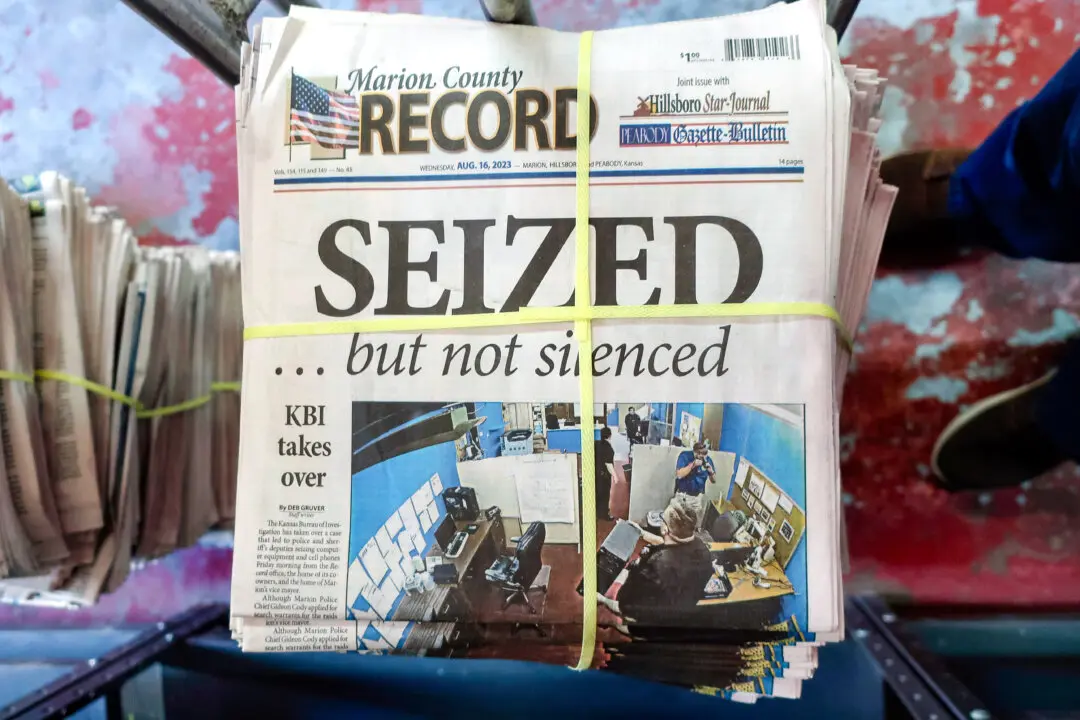Prosecutors hired to investigate the search warrants executed on a Kansas newspaper and the homes of an editor and reporter claim that the police chief who led the operation violated the law by obstructing their investigation.
Former Marion Police Chief Gideon Cody induced a witness or informant to withhold or unreasonably delay the production of testimony or information, special prosecutors Marc Bennett and Barry Wilkerson say.





